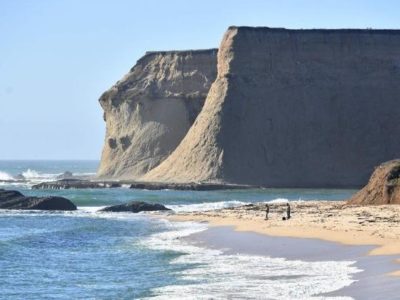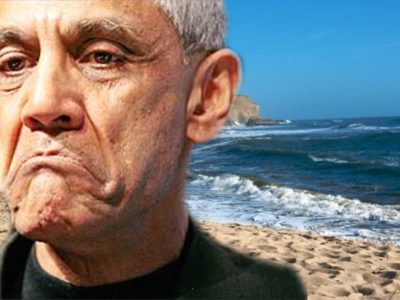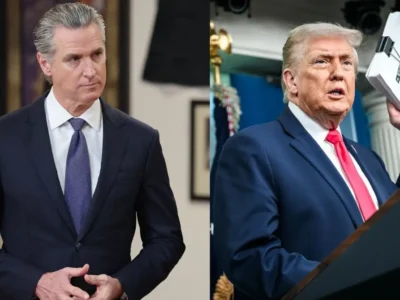If You Can Buy a Coast, You Can Buy a Newspaper
Supreme Court’s California Coast Decision Will Be Back, No Matter What the Papers Say

High-fives, or at least, sighs of relief, from environmentalists this week, as the Supremes denied cert in Surfrider Foundation v. Martin’s Beach, a case where Sun Microsystems founder and multibillionaire Vinod Khosla challenged aspects of California’s Coastal Act. Article after article after editorial is celebrating this as a great victory for the environment and the California coast. But even scratching the surface of this case shows 1) that it will be back; and 2) billionaires have a way of getting favorable and massive press coverage.
Khosla bought a lavish estate on Martins Beach, near Half Moon Bay in California, where for a long time, surfers and beachgoers would use an access road on the side of the property to get down to the beach, which is public. Khosla decided that he didn’t like these folks traipsing across his property, closed it off or alternatively, raised the price for access to get the activity to pay for itself.
Not so fast, said the California Coastal Commission, arguing that closing off access to the beach, raising the price, and posting a sign meant that Khosla had to get a Coastal Development Permit under Cal. Pub. Res. C. §30106. Claiming that he likes the Coastal Act but that private property rights are sacrosanct, Khosla refused to apply for the permit and sued. The Surfrider Foundation intervened on behalf of the Coastal Commission.
Here’s where the procedural posture of the case gets weird. The California Court of Appeal issued a temporary injunction, saying that Khosla did indeed have to get a CDP to do this. So after the California Supreme Court declined to review the case, Khosla retained conservative hired-gun and former Solicitor General Paul Clement to petition to the Supremes for cert on the grounds that the injunction was a Taking and in any event, the Commission overstepped its own legal authority by insisting on a CDP.
It’s pretty obvious in retrospect why the Supremes didn’t want this case: the Takings claim was based upon the injunction, and Clement and amici the Pacific Legal Foundation argued that this was tantamount to a permanent physical taking under Loretto v. Teleprompter, which held that permanent physical occupations are per se takings. But the injunction was temporary. Then Khosla and his lawyers argued that even requiring a permit is a taking, which is really a stretch. In any event, the case was nowhere near ripe for adjudication: apply for the permit, and if you get turned down, then make the Takings argument.
And that’s precisely what Khosla is going to do: apply for the permit, and if he gets turned down, which

is likely, bring the case up again. He said as much in the fawning New York Times piece. All the articles about this “important”Supreme Court decision are really overstated. Consider Business Insider’s headline: “The Supreme Court dealt and major blow to a billionaire California venture capitalist who bought and closed a beach that had been open to the public.” Or the New York Times: “Billionaire’s Fight to Close Path to a California Beach Comes to a Dead End”. Nonsense. This case will be back, and with GOP operative Brett Kavanaugh on the court, there might be five votes for it.
It really shows how reporters don’t understand the way that the law works. But more importantly, it shows how a billionaire who can afford high-priced lawyers and PR talent can get them to bite on a story. Here is the NYT lede:
It was a happy day for the Silicon Valley venture capitalist Vinod Khosla: He lost his battle.
Then it goes on and on about how Khosla really loves the Coastal Act and the environment, you understand: this is just a matter of High Principle. Interestingly, none of the articles lionizing Khosla’s dedication to the coast have said anything about, say, what he has actually done to protect the coast, involvement in environmental protection, etc.
And that, boys and girls, is why we can’t have nice things.







Reader Comments